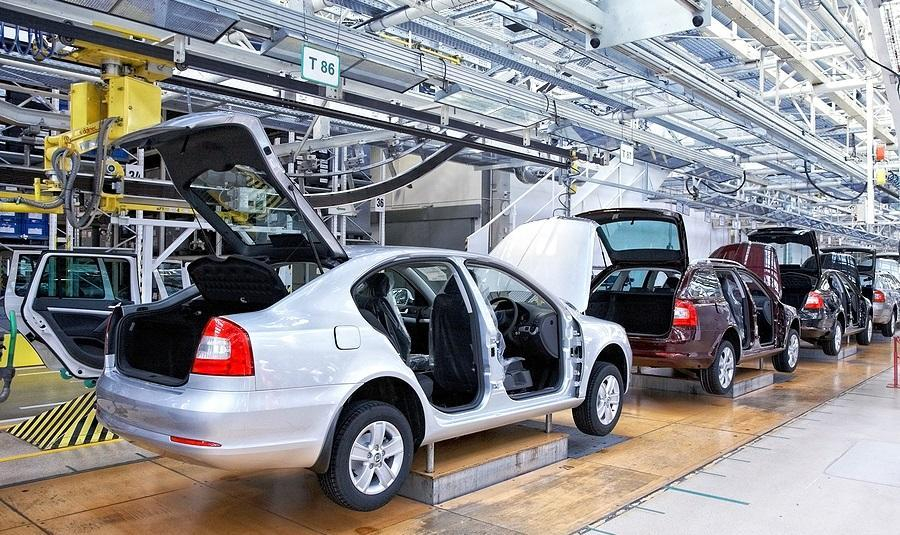Analysis

July 26, 2021
GM Extends Chip Outages to Truck Plants, Toyota 'Close to Normal'
Written by Michael Cowden
General Motors has extended chip-related outages to assembly plants that make its highly sought-after pickup trucks.
The Detroit-based automaker, the largest in the U.S., had previously tried to shield truck plants from the impacts of the semiconductor shortage.
![]() Here is the latest:
Here is the latest:
• General Motor’s assembly plant in Flint, Mich., will operate on one production shift for the week of July 26. It is expected to resume regular production on Monday, Aug. 2, a company spokesman told SMU.
Flint builds the Chevrolet Silverado HD and GMC Sierra HD pickup trucks.
• The company’s assembly plant in Ft. Wayne, Ind., will take downtime for the week of July 26. It is slated to resume regular production on Monday, Aug. 2.
Ft. Wayne builds the Chevrolet Silverado 1500 and GMC Sierra 1500 models.
• GM’s Silao Assembly in Mexico will take downtime for the week of July 26. It, too, is scheduled to resume regular production on Monday, Aug. 2.
Silao builds the Chevrolet Silverado 1500, Cheyenne and GMC Sierra 1500 pickup trucks.
The downtime at truck plants comes after GM idled a raft of assembly plants that make SUVs.
GM had previously said that it was opting not to take summer downtime at some facilities because it had secured sufficient chips to make up for production lost earlier in the year.
“These most recent scheduling adjustments are being driven by temporary parts shortages caused by semiconductor supply constraints from international markets experiencing COVID-19-related restrictions. We expect it to be a near-term issue,” the GM spokesman said.
“In addition, this period will provide us with the opportunity to complete unfinished vehicles at the impacted assembly plants and ship those units to dealers to help meet the strong customer demand for our products,” he added.
And it’s not just GM that is having continued issues with the chip shortage. So, too, is Honda, which this week will “adjust production based on parts supply” at some of its North American plants, a company spokesman said.
“Honda continues to manage supply chain issues related to a number of factors including the impact from COVID-19, congestion at various ports and the microchip shortage,” he said.
The Japanese automaker declined to provide plant- or model-specific information because of what it characterized as a “fluid situation.”
It’s not clear how long the chip shortage might drag on. Chip maker Intel said during its earnings call last week that the shortage could last into 2023.
“While I expect the shortages to bottom out in the second half, it will take another one to two years before the industry is able to completely catch up with demand,” Intel CEO Patrick Gelsinger said during the call.
One automaker that has escaped mostly unscathed is Toyota. “No plants are being shut down for extended periods of time at this point,” a spokewoman for the Japanese automaker – among the world’s largest – said of its North American operations.
Toyota has managed to keep things running by eliminating overtime and production on Saturdays to maintain “close to normal operations at our plants in the U.S.,” she said.
Toyota was hit hard by a fire at Japanese semiconductor manufacturer Renesas Electronics in March. The semiconductor manufacturer said last month it expected to be at 100% of pre-fire production levels at a key plant by around the third week of July.
SMU has been told that the recovery from the fire at Renesas – the major chip supplier to Toyota – was what made the compartive return to normal at Toyota possible. Toyota does not comment about specific sourcing percentages or individual suppliers, the spokeswoman said.
Steel’s Reaction
Taking downtime on lines that make popular models such as the Silverado is not something GM intended to do, Nucor President and CEO Leon Topalian said during the company’s second-quarter earnings call.
“None of that is by design, right. It’s because they can’t get the parts that they need,” he said.
And that’s not specific to GM or even to the automotive industry. Semiconductor shortages might relate most directly to steel, but similar shortages have occurred throughout the COVID-19 era – especially when it comes to pharmaceuticals, personal protective equipment (PPE) and medical devices, Topalian said.
“I think most Americans have learned through this pandemic (that) this nation needs to be a nation that builds and makes things again,” he said. “We’ve got to restore manufacturing.”
Cleveland-Cliffs shipped 1.2 million tons of steel directly to automotive consumers in the second quarter, which was 300,000 tons less than had been forecast, company Chief Financial Officer Kieth Koci said.
And Cliffs Chariman, President and CEO Lourenco Goncalves noted that the chip shortage is only the “tip of the iceberg” when it comes to supply chains proving to be too complex and too fragile.
“I assume that going forward … they (automotive OEMs) will start to manage their supply chains a little better, with more emphasis on real things like being close to the supplier,” he said.
But the chip shortage is not without its silver linings. Cleveland-Cliffs has been able to divert contract tons initially slated for the automotive market to the more profitable spot market, Goncalves said.
“When stated like that, it sounds simple. But reorganizing both the melt schedules and deliveries of these materials was a challenge that our team did a great job overcoming during the quarter,” he added.
By Michael Cowden, Michael@SteelMarketUpdate.com







